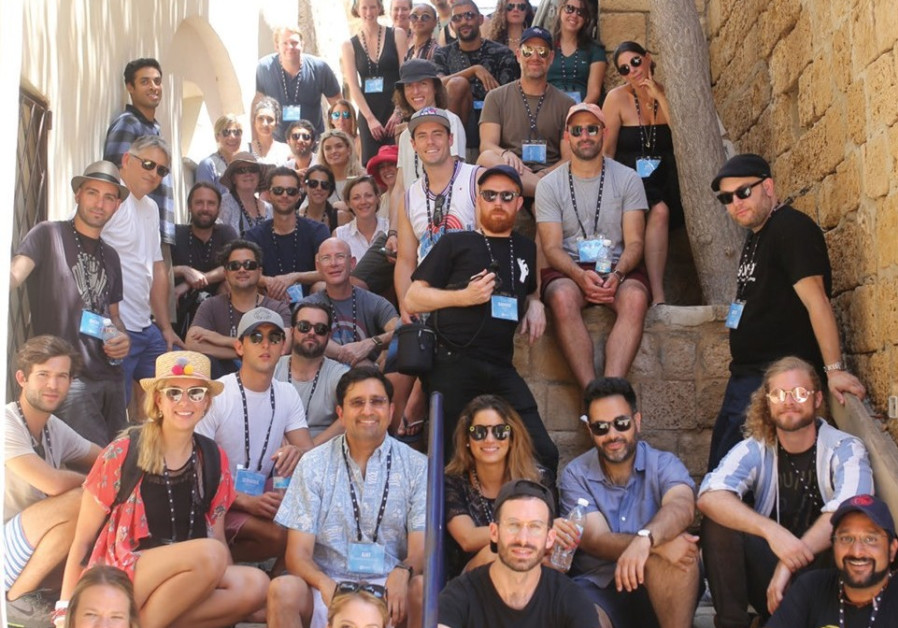Virtual reality gives new dimensions to an ancient place.

As virtual and augmented reality technologies continue to revolutionize human perception, the industry’s innovators are eager to connect people to formerly inaccessible times and places.
“We’re treating entertainment like experiences,” Cliff Plumer, a San Francisco-based entertainment industry veteran, told The Jerusalem Post earlier this week. “The other area I’m very passionate about is education – being able to create experiences for people to learn about places and be immersed in cultures they can only read about or potentially see in a film.”
Plumer, who serves as CEO of The Void, a virtual reality- based immersive entertainment company headquartered in San Francisco, was in Israel this week with 50 leading influencers in the virtual and augmented reality spheres. They participated in “Beyond REALITY,” a tour organized by the Charles and Lynn Schusterman Family Foundation to showcase “Israel’s most sacred and storied sites” as well as introduce the country’s leading AR/VR (augmented and virtual reality) professionals.
“The idea of VR/AR lives at the intersection of technology and storytelling,” Seth Cohen, senior director at the Schusterman Foundation, told the Post. “What’s most promising about virtual reality is that it literally can help shift the way people can experience things that may have been imperceptible to them in the past.”
The REALITY program, established in 2009, aims to provide participants with an all-expense paid “exploration of one’s leadership capacity” while positioning Israel as the “complex and motivating backdrop,” according to the foundation. By the end of 2017, REALITY will have offered 12 different “journeys” this year – each bringing together a group of handpicked professionals who represent their trip’s specific theme.
Following trips this year with themes like wellness, general hi-tech, female leadership and sports, Beyond REALITY is concentrating on the artificial and virtual reality sectors. Augmented reality involves superimposing three-dimensional objects onto the real world, while virtual reality immerses users entirely into an artificial sensory environment.
“This trip is as much about the storytelling capacity of this technology as it is about the technology itself,” Cohen said. “The best people to help think about that intersection are the people at the forefront.”
The program, he explained, is an experiential journey that uses Israel as its base, both demonstrating the country’s complexity and encouraging the participants to hone their leadership skills. Although the participants come from all over the world, most are American industry professionals who are passionate about Israel and repairing the world, Cohen added.
“REALITY is an epic journey to Israel that uses Israel as a prism through which you see the complexity of your world and your ability to create change within it,” he said.
For Plumer, Beyond REALITY presented an opportunity to see a country that he had always intended to visit, while tying the trip into his professional interests. In addition to touring the country itself, Plumer said he enjoyed meeting with a local venture capitalist, to gain insights as to how Israel’s innovation sector operates on the ground.
“It sounds like with this the sort of tech being developed here, the Israeli community can have a big impact in this new platform,” he said.
Looking at the virtual reality in general and at the work of his company specifically, Plumer discussed the possibilities of using entertainment to bring people to any place in the world, at any time period.
“That will just create opportunities for people to explore things that they’ve only read about,” he said.
Such new technologies, he explained, could bring their diverse users together, by teaching them about different cultures.
Speaking with the Post on Monday, Plumer reflected on a simple Tel Aviv sunset he had experience the evening before, and how such moments could be conveyed to other people around the world by means of virtual reality and other cutting edge technologies.
“Just standing there and having that full 360-degree view, it was something that I won’t forget,” Plumer said. “I love capturing moments like that so other people can have that experience – not just visually see what I was seeing, but from sound to smell, to the breeze – all those these that go into creating a full immersive experience.”
For the trip organizers, the hope is that the participants will gain an enduring relationship with Israel and a greater understanding of its challenges – all the while witnessing how technology can build bridges between people.
“We’re taking people who are focusing on the newest technologies to one of the oldest places in the world, one of the oldest places where humanity has come together,” Cohen said. “Virtual reality is a space that brings people together virtually. Jerusalem is a place that has brought people together for thousands of years. Understanding the power of place, in the context of the power of media, is something that should be profound.”
As reported by The Jerusalem Post
